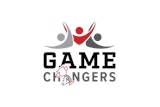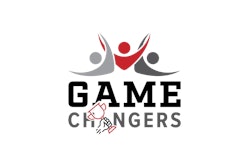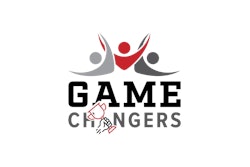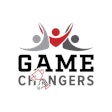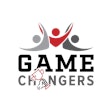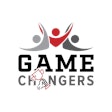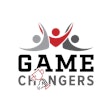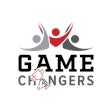This article appeared in the May issue of Athletic Business. Athletic Business is a free magazine for professionals in the athletic, fitness and recreation industry. Click here to subscribe.
 Bobbi Nance
Bobbi Nance
is senior manager of strategy and innovation for the Park District of Oak Park, Ill.
When trying to determine what makes a great leader, we often start by creating a long list of qualities we've observed in the people who inspire us. Have you ever noticed that there is not one quality on those lists that every single successful leader possesses? This is because what great leaders have in common is not the talents they possess, but instead a keen awareness of what their individual talents are and how to make the most of them.
I've seen how focusing on my own individual strengths has led to many of my successes and also played a large part in how I earned my current title of "senior manager of strategy and innovation." Research by Gallup supports this philosophy as well — people who use their strengths every day are six times more likely to be engaged at work, 8 percent more productive, and 15 percent less likely to quit their jobs.
So if the best leaders do it and all companies should want it, why is it that over half of Americans report that they don't use their strengths throughout the majority of their workday?
What's your biggest strength?
Before you can fully utilize your strengths, you need to have a solid understanding of what they are. Even though "What are your strengths?" is one of the most commonly asked interview questions, many people have not taken the time to come up with an answer beyond what they think interviewers want to hear. True strengths aren't just tasks we're good at, but ones that make us feel strong as well. To have a better understanding of your own individual strengths, try the following:
Reflect on your past work — What tasks and projects actually energize you? What are you excited to learn about? What type of work do you get so absorbed in that you lose track of time?
Ask for feedback — Do you notice any patterns in why people come to you for help? Ask others "When do you see me at my best?"
Take an assessment — There are several assessments that will help clue you into your strengths. The most popular is the StrengthsFinder assessment, which is what got me started on my journey. StandOut is another great tool for helping you understand the strengths you bring to a team.
Find the missed opportunities
Understanding your strengths is just the start, next you need a plan to put them into action. Honing in on your strengths and finding more opportunities to use them will require extra effort on your part, though as you use them more, they will become more natural and habitual. The following questions might help spark some ideas:
• What new situations could you put yourself in to use a strength more? What meetings could you attend, projects could you volunteer for, etc.?
• What new skills can you learn, what blogs can you read that will help you grow these strengths?
• How can you share your best practices around this strength and teach it to others?
• Where do you have opportunities to develop this strength outside of your job that will still benefit you professionally?
It's important to remember that while the overall goal is to spend less time on the activities that drag you down, it doesn't mean you'll be doing less work. In fact, I find I'm actually doing more work. But to have the kind of work that doesn't actually feel like work is what we're all after, isn't it?
There will always be aspects of a job that you don't look forward to, but strengths can help with those as well. When you are faced with a task that you dread, try to think of a way to tweak it to utilize your strengths. For example, when I'm assigned a routine administrative task, I will work to create a process to automate it. This requires more effort on my part than maintaining the status quo, but will ultimately free up time in the future to focus more on projects related to my strengths.
Additionally, knowing your strengths can help you change your perception about a task or project. Much of the work that I oversee involves short-term projects and improvements, but some, such as managing our accreditations, can seem to drag on forever. Because I love the act of getting things started, I've learned to break the accreditations into several smaller pieces so that it feels like I'm always starting something new, even within the same project. This small tweak gives me little bursts of energy throughout what could otherwise be a long, mundane task.

Strength in numbers
Being a "team player" in the workplace often means stepping up to do what's needed to get the job done, including taking on tasks and projects simply because someone has to do them or it's your turn. However, high-functioning teams capitalize on individual strengths, allowing team members to step up and shine at different moments. This means that sometimes the best thing that we can do to enhance team performance is step back and wait for tasks that align with our strengths.
Before focusing on strengths, I would often step up to volunteer to take on a new project early in team meetings only to be disappointed when a more fitting opportunity would come up later. Now, unless the circumstances require it, I try to deliberately save my time for work that is directly related to my strengths. This means that in some meetings I never raise my hand and in others I may take on the majority of the work, but ultimately I'll always be doing my best work for the team.
Consideration of strengths can also help you create more successful teams and partnerships as well. For example, others' strengths can help you:
Make up for a weakness — Search out those who thrive on completing the types of activities that are a weakness for you. It's almost the talent version of "one man's trash is another man's treasure."
Pick up where another person left off — Sometimes the activity isn't something you dread, but one that could still benefit from another's strength. For example, while I love public speaking, I don't love walking up to strangers and starting a conversation. If I bring someone who has the natural gift of gab to a networking event, I can let him or her break the ice and I make more new contacts than I would on my own.
Amplify a strength — Even when your strengths are perfect for the situation, you may still benefit from the help of another. If you have a talent for understanding team feelings, finding someone else with a similar strength can help you double-check your observations. Or if you are constantly coming up with new ideas, setting up a monthly chat with someone else with a similar strength could help you both be even more creative.
Dolly Parton summed it up best when she said, "Find out who you are and do it on purpose." Knowing your strengths is important, but owning them and intentionally acting upon them will take you to the next level. Even if your supervisor genuinely wants to help you utilize more of your strengths, it's not realistic to expect anyone else to truly understand your strengths and motivations like you do. There is no use waiting for someone to hand you your perfect job. Instead, take the initiative to develop your strengths and with persistent and deliberate effort, you may soon see your work shifting to align with your newfound source of success.
This article originally appeared in the May 2016 issue of Athletic Business with the title "Want to be better at your job? Play to your strengths"













